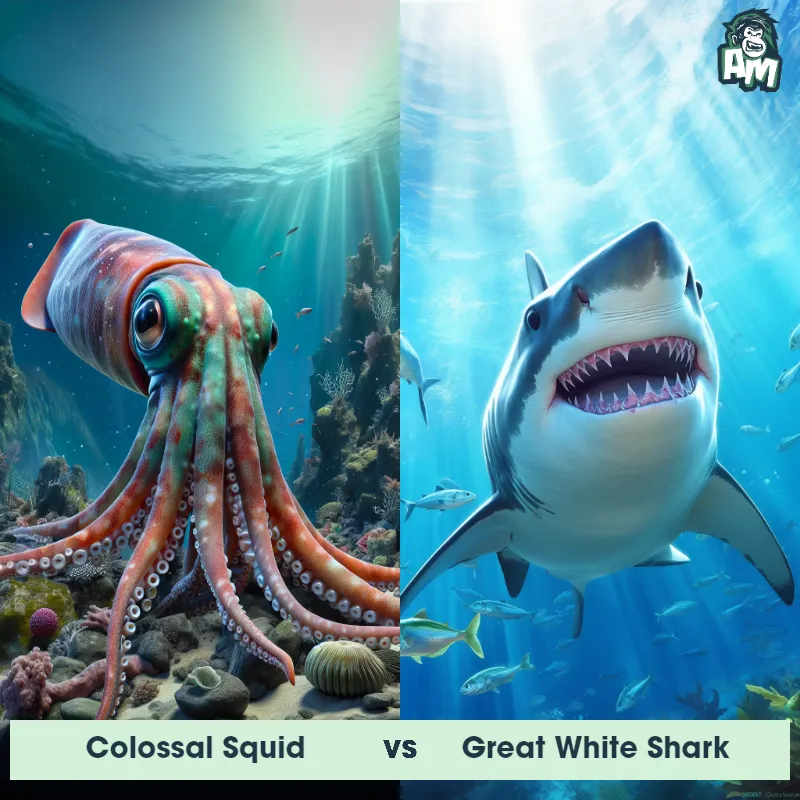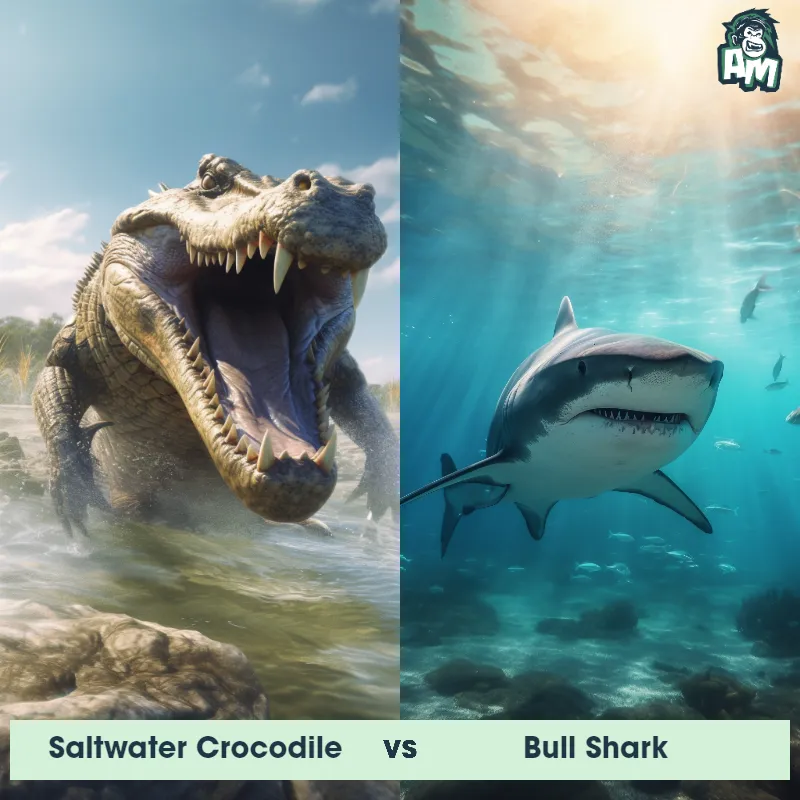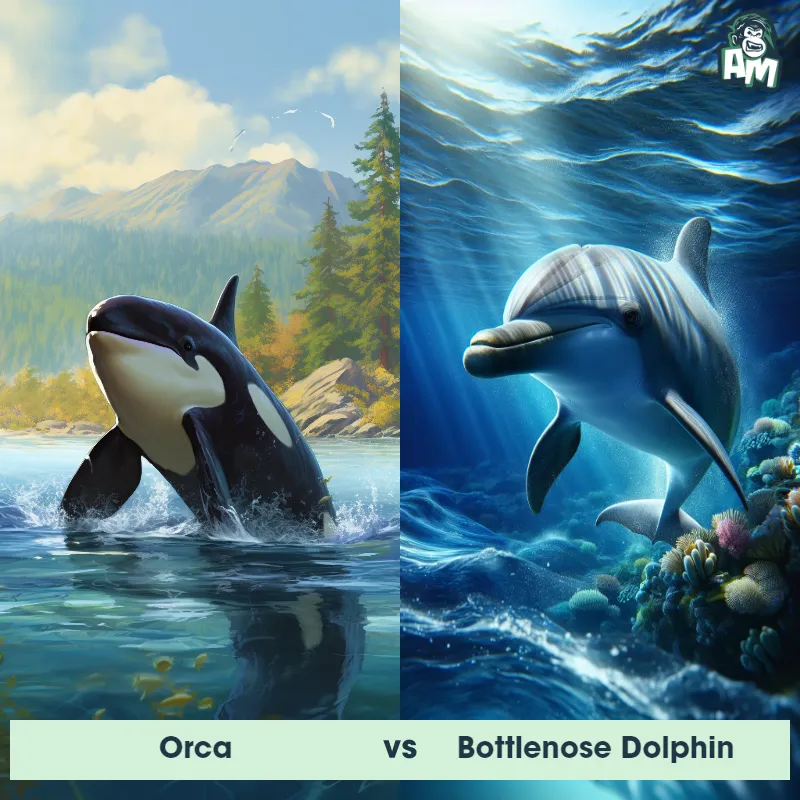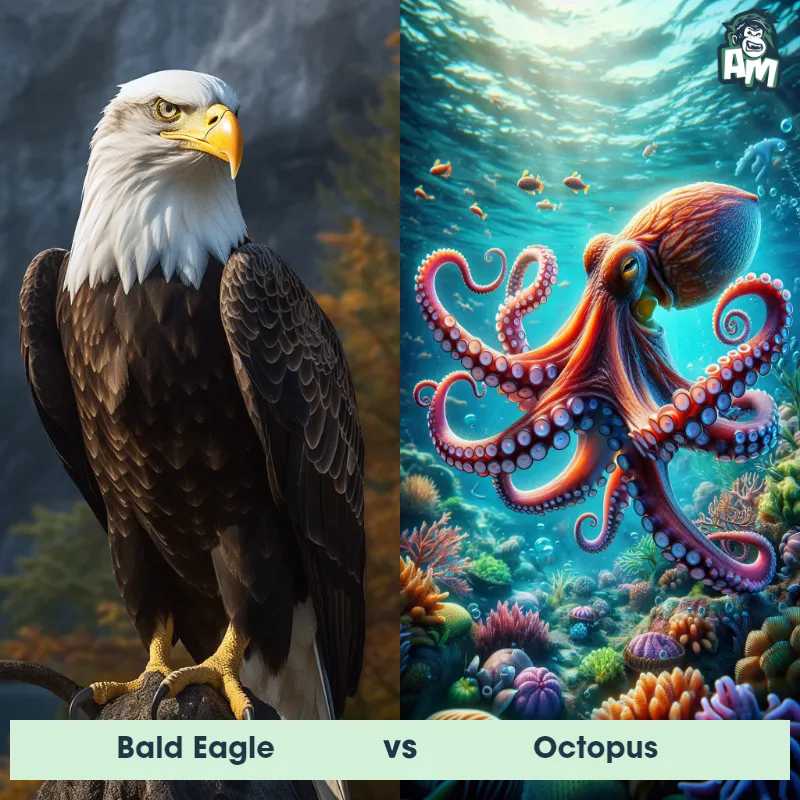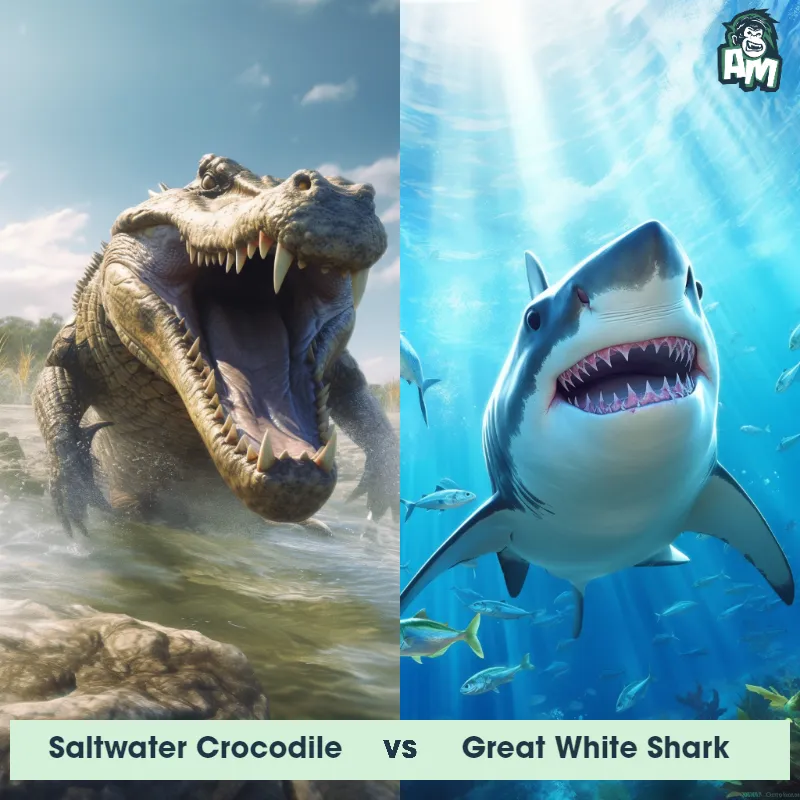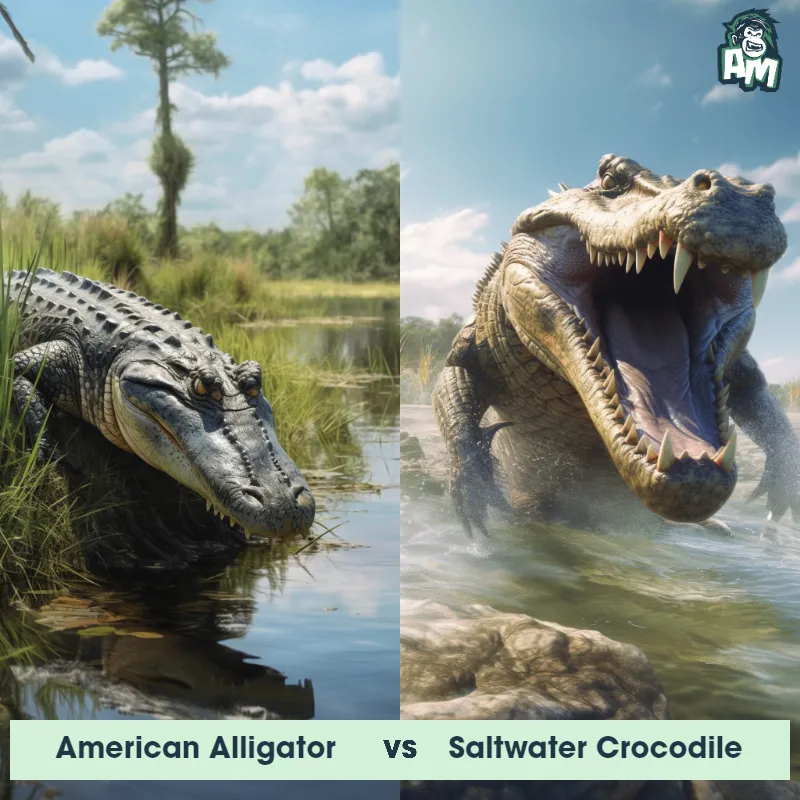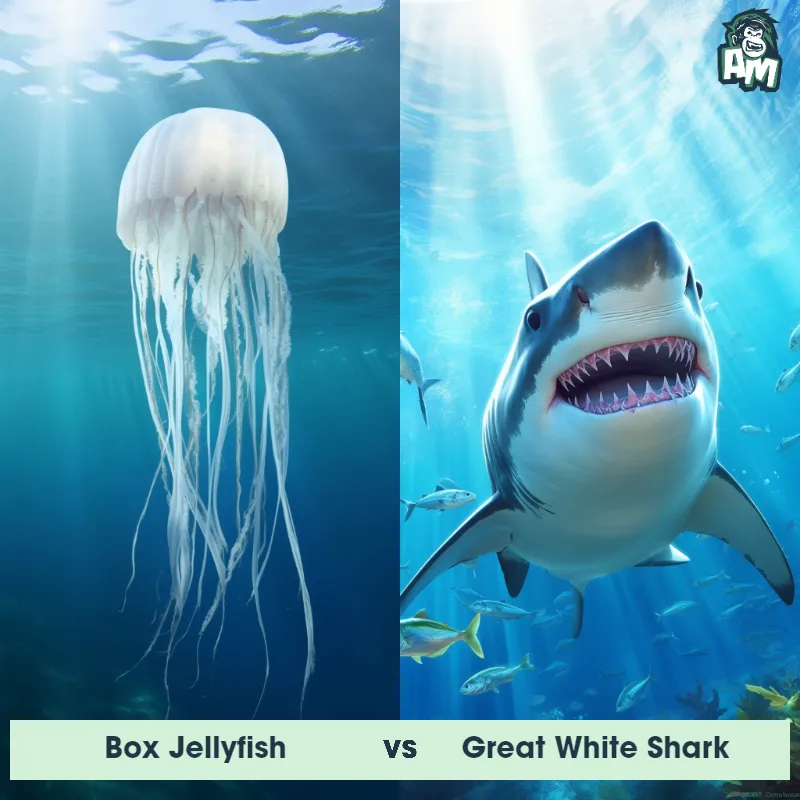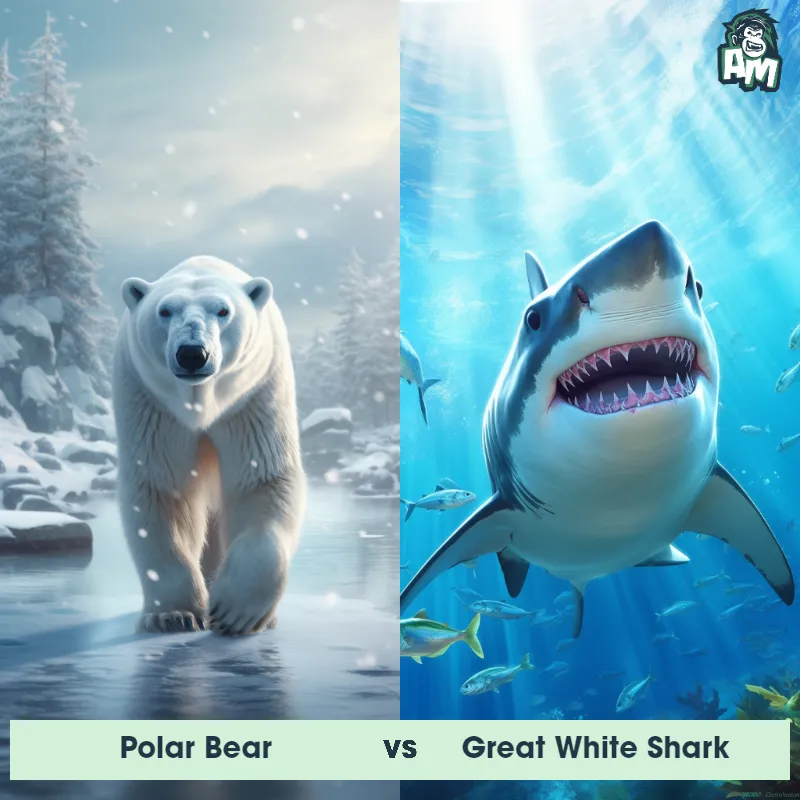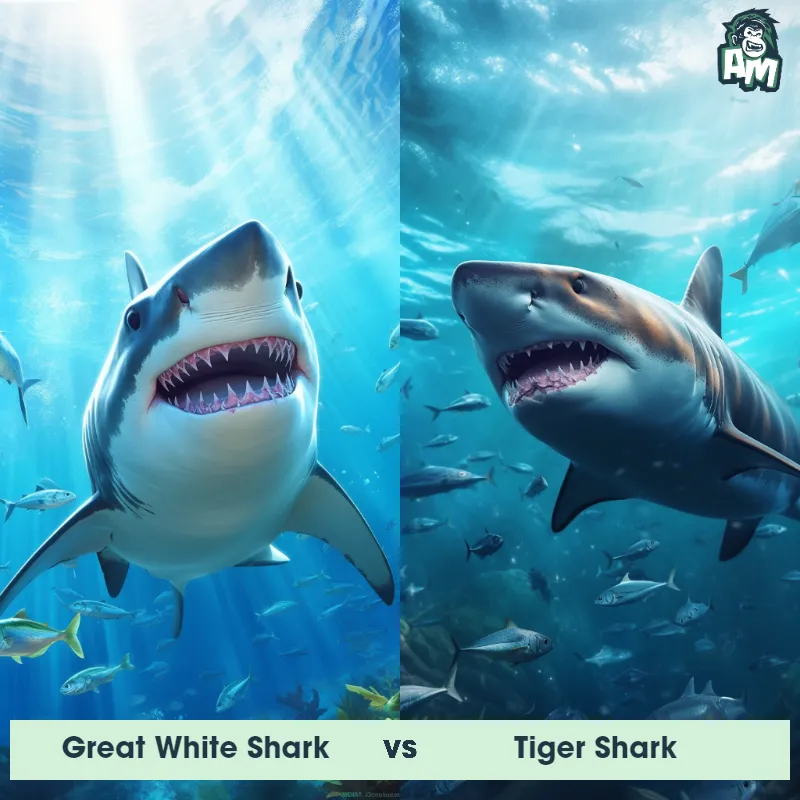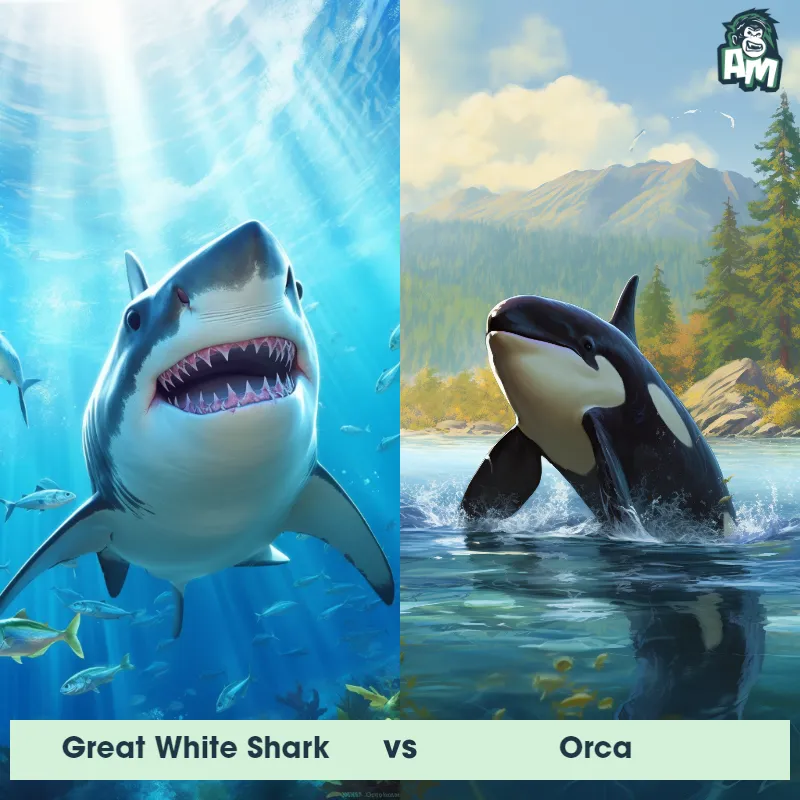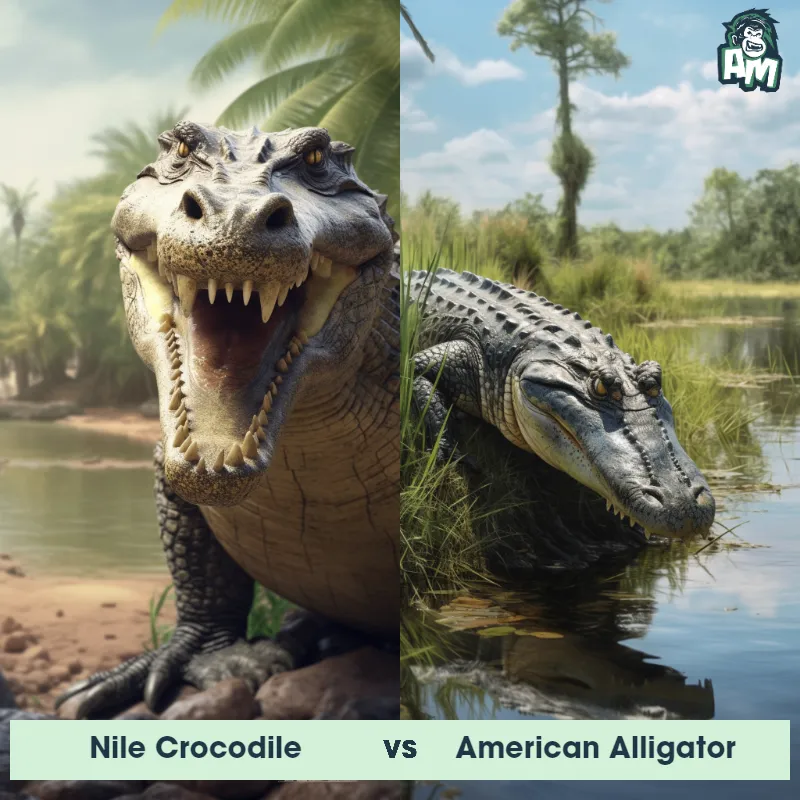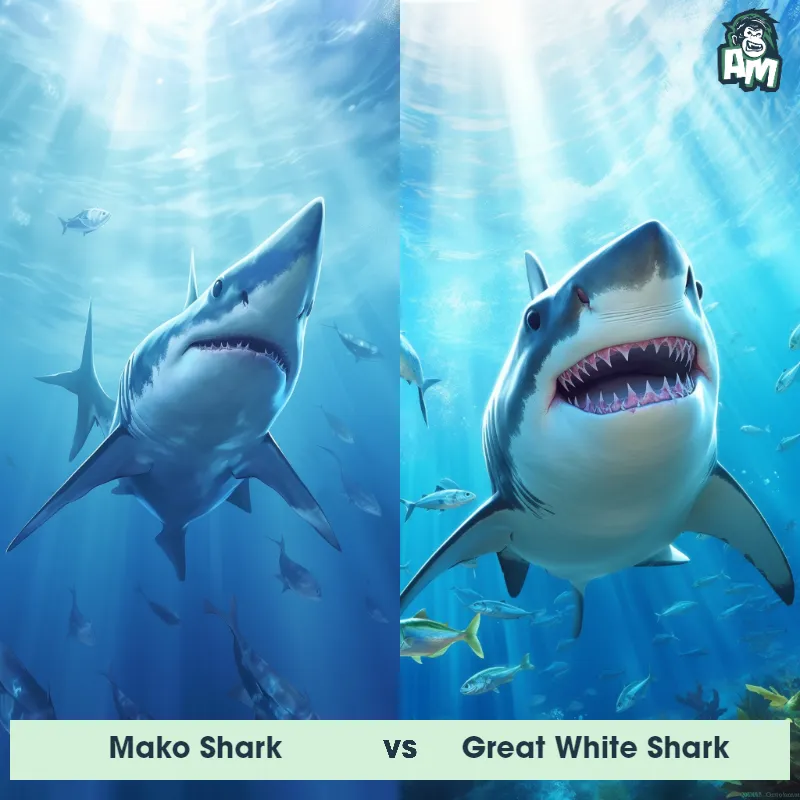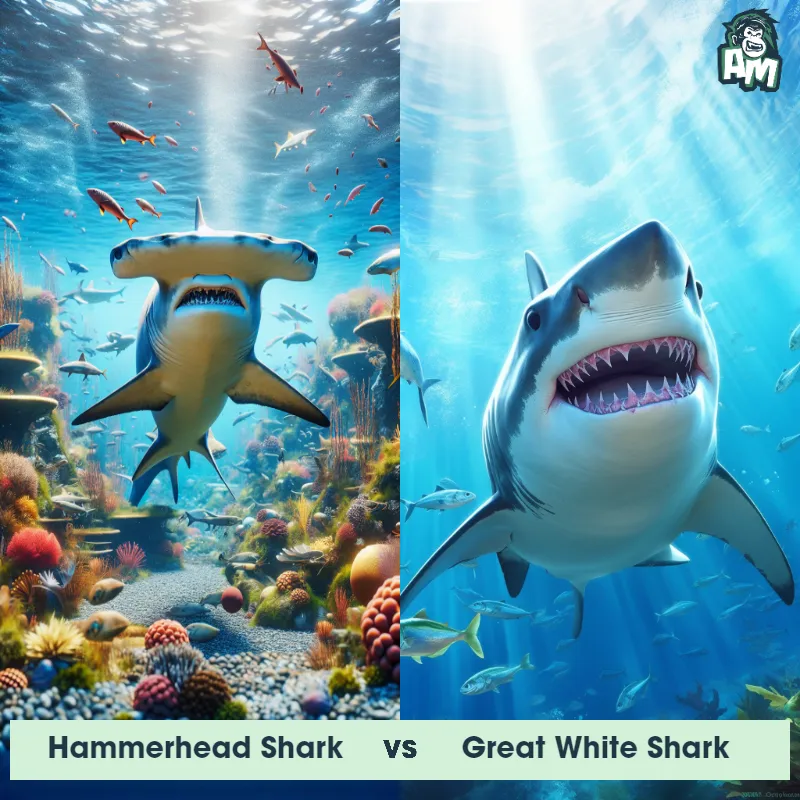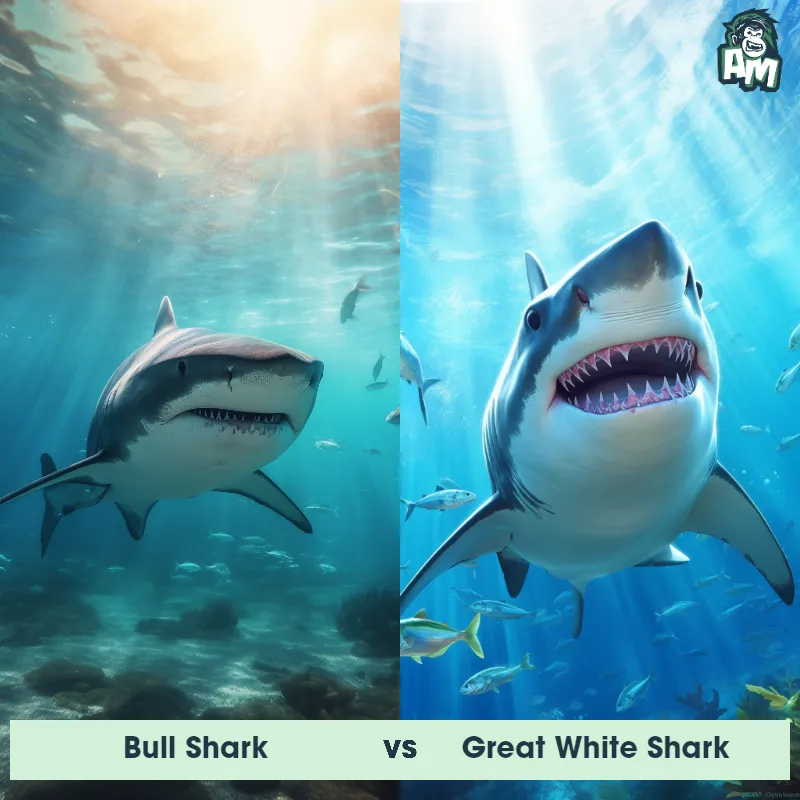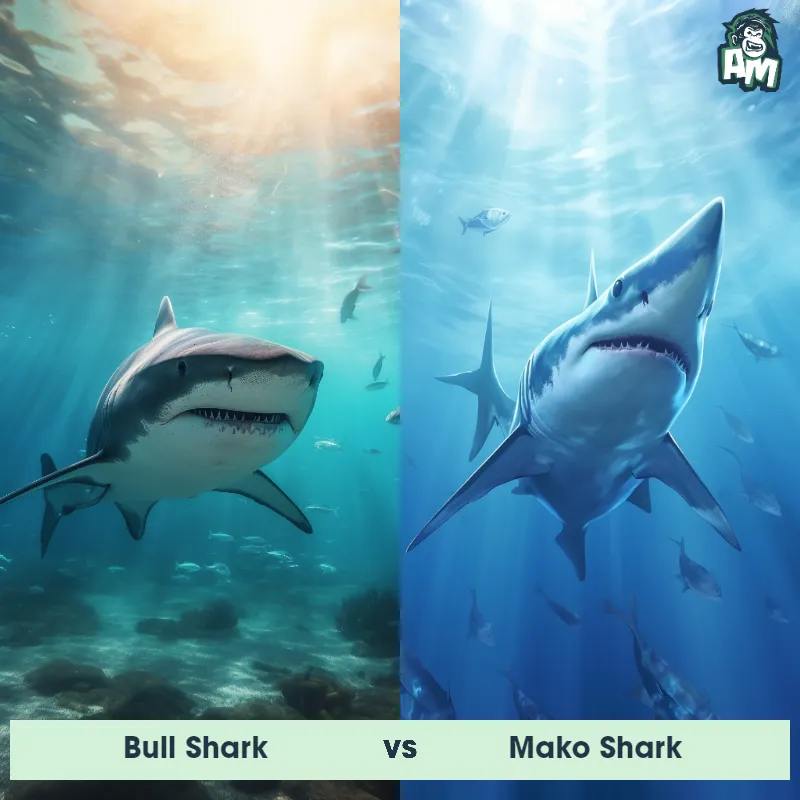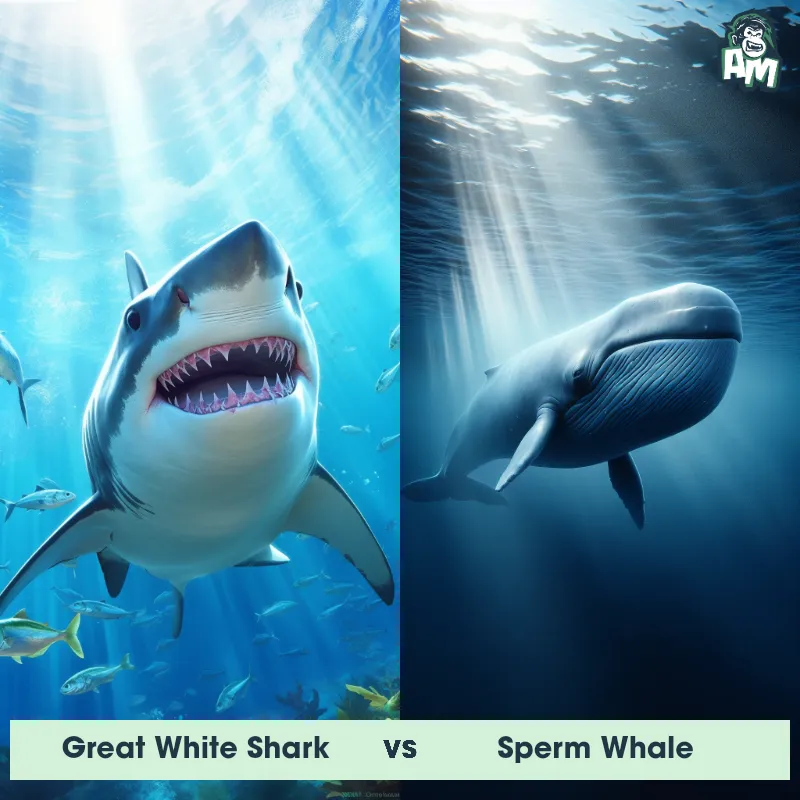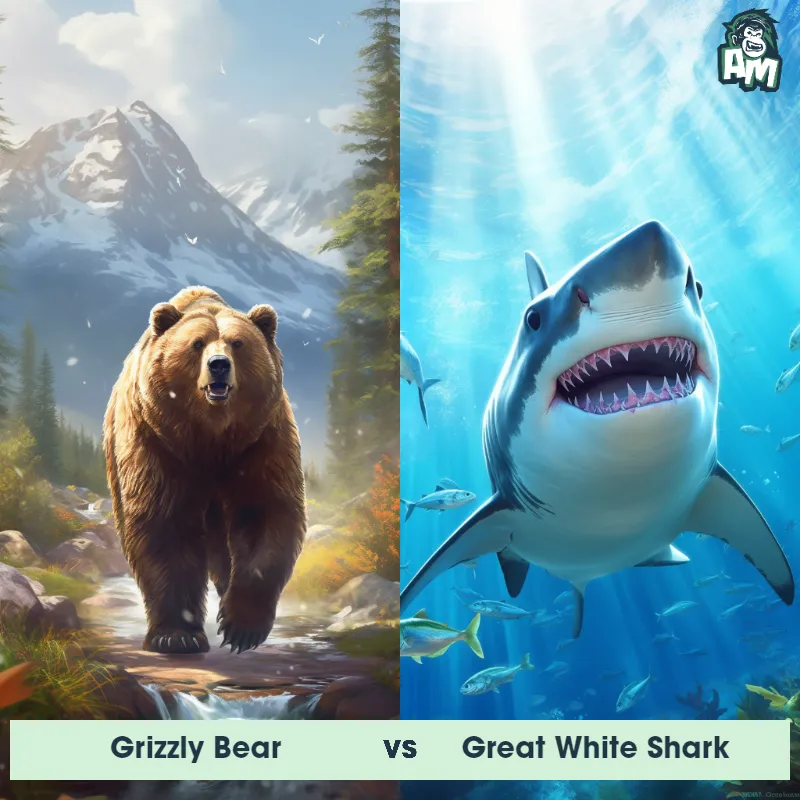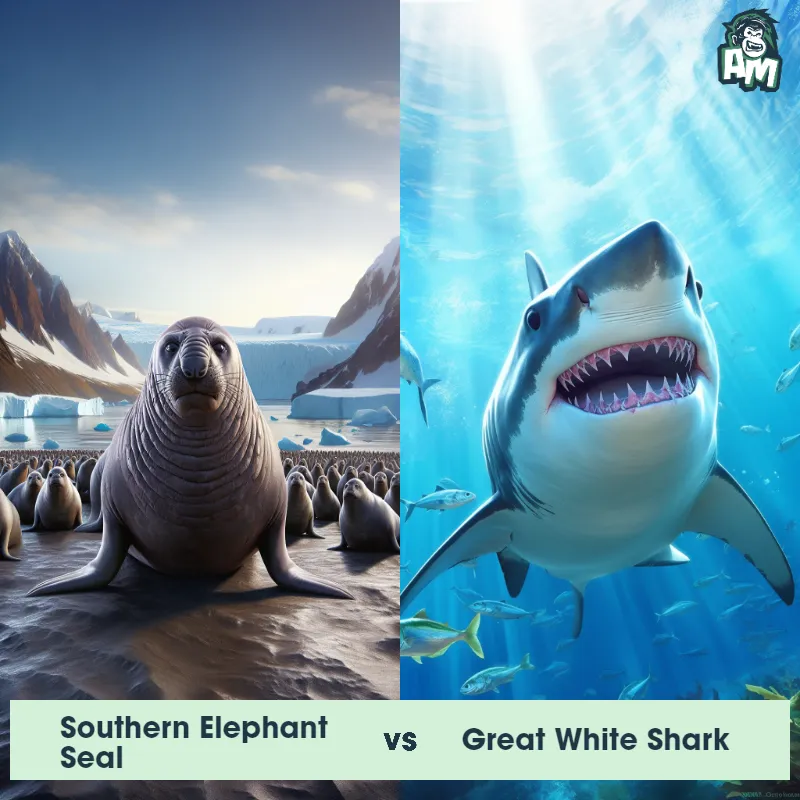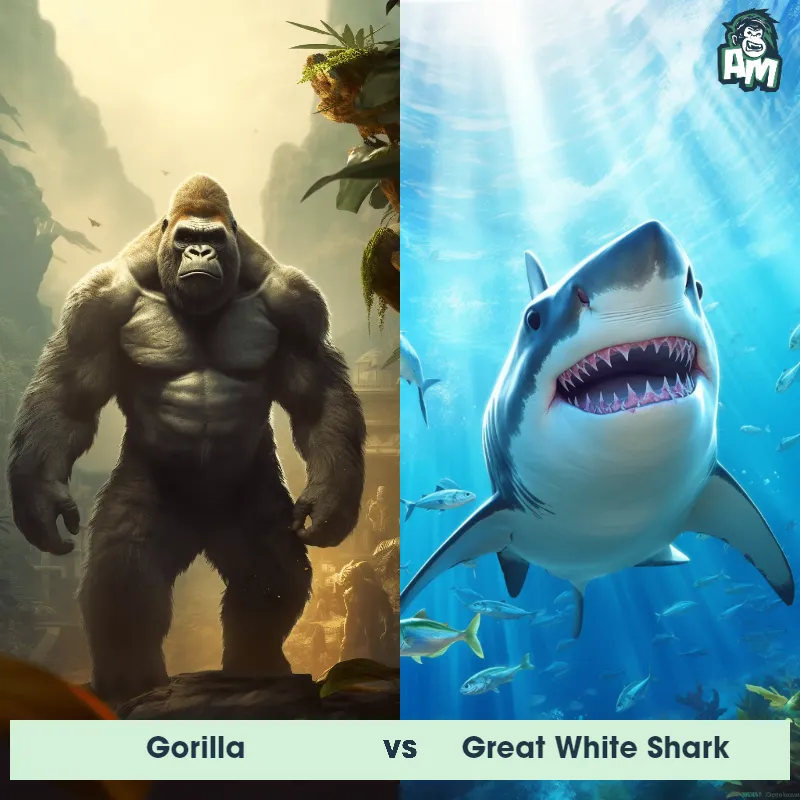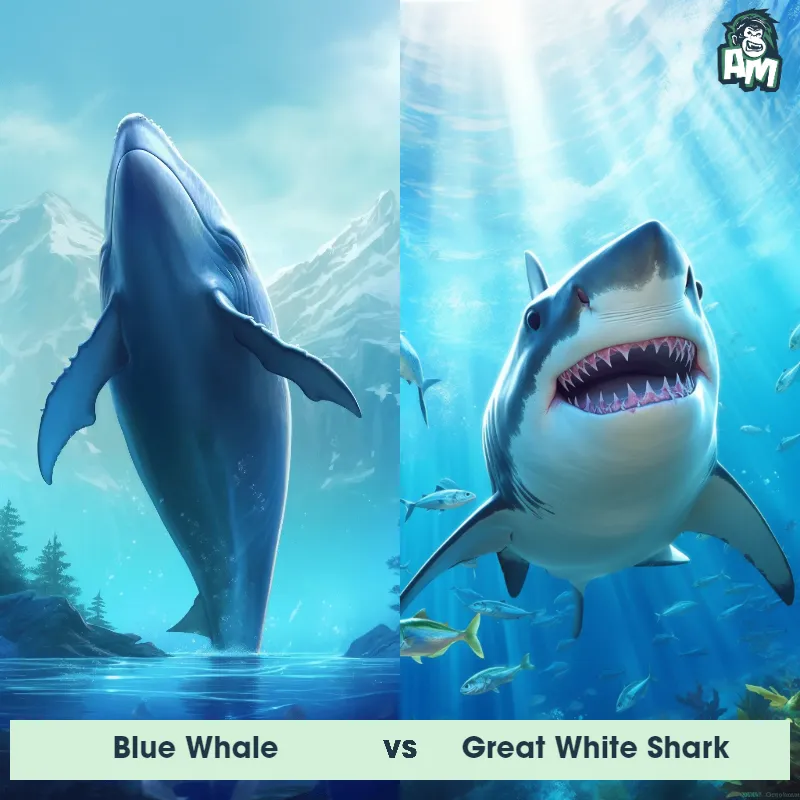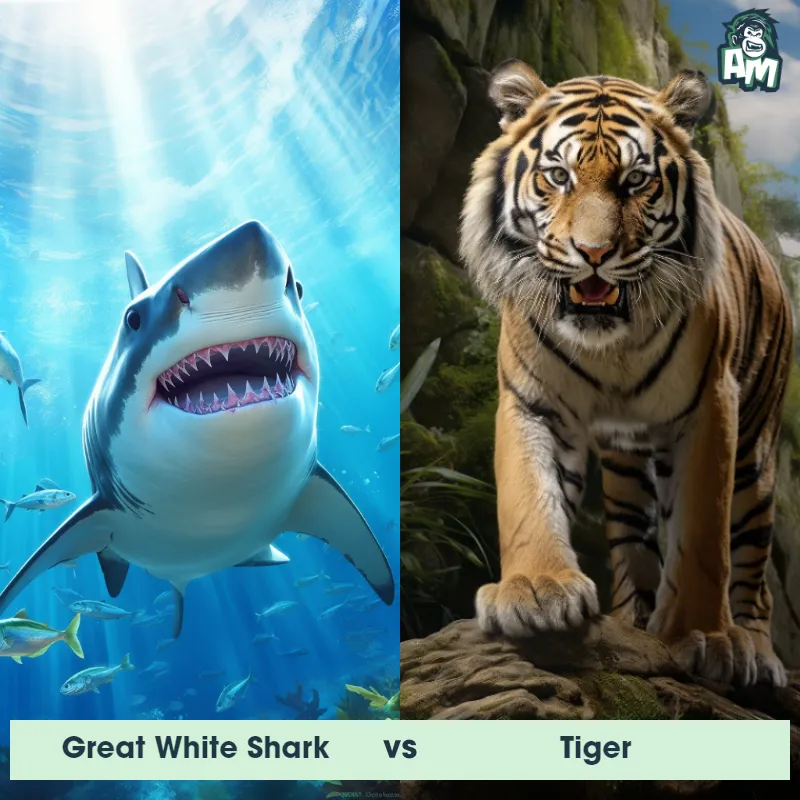American Alligator vs Great White SharkSee Who Wins

Ladies and gentlemen, welcome to this epic showdown between two of nature's most formidable predators! In one corner, weighing in at a ginormous 1,000 pounds, we have the American Alligator, known for its powerful jaws and armored body. And in the other corner, lurking beneath the surface at a staggering 5,000 pounds, we have the fearsome Great White Shark, boasting razor-sharp teeth and lightning-fast speed. Get ready for a clash of the titans!
Contender 1: American Alligator
The American Alligator, also known as the Florida Alligator, is a large reptile that can grow up to 14 feet long and weigh over 1,000 pounds. They have a broad, rounded snout, powerful jaws, and a muscular body covered in tough, scaly skin. Their coloration ranges from dark green to black, with a lighter underbelly. They are found in freshwater habitats throughout the southeastern United States, and are known for their ability to regulate their body temperature by basking in the sun.
Fun Fact: American Alligators are known to use tools, such as sticks, to lure birds to their location so they can catch them more easily.
Contender 2: Great White Shark
The Great White Shark, also known as the white pointer or white death, is a large predatory fish that can grow up to 20 feet in length and weigh over 5,000 pounds. They have a distinctive torpedo-shaped body, grayish-brown skin, and rows of sharp teeth that can number up to 300. Great White Sharks are found in coastal waters all over the world and are known for their powerful jaws and ability to breach the surface of the water.
Fun Fact: Great White Sharks have a unique sense of smell that allows them to detect a single drop of blood in 25 gallons of water, which is equivalent to the size of an Olympic swimming pool.
Matchup Stats
| American Alligator | Great White Shark | |
|---|---|---|
| Size | Up to 14 feet (4.3 meters) | Up to 20 feet (6.1 meters) |
| Weight | Over 1,000 pounds (453.6 kilograms) | Over 5,000 pounds (2,268 kilograms) |
| Speed | Speed: 20 mph (32.19 km/hr) | Speed: 25 mph (40 km/hr) |
| Key Strength | Powerful jaws and muscular body | Powerful jaws and sharp teeth |
| Biggest Weakness | Slow movement on land | Vulnerable gills and eyes |
Current Votes
American Alligator vs Great White Shark
See Who Wins
View More Matches
Looking For More?
Similar Matches
Scientific Stats
| American Alligator | Great White Shark | |
|---|---|---|
| Scientific Name | Alligator mississippiensis | Carcharodon carcharias |
| Family | Alligatoridae | Lamnidae |
| Habitat | Freshwater habitats | Coastal waters |
| Geography | Southeastern United States | Worldwide |
| Diet | Carnivorous, eats fish, turtles, birds, and mammals | Carnivorous, primarily seals and sea lions |
| Lifespan | 30 years - 50 years | 70 years - 100 years |
Key Differences between American Alligator and Great White Shark
- Habitat: The American Alligator is primarily found in freshwater habitats such as marshes, swamps, and rivers, whereas the Great White Shark is a marine species typically inhabiting coastal areas and open ocean environments.
- Teeth: The American Alligator possesses numerous sharp, conical teeth designed for gripping and crushing prey, while the Great White Shark has rows of razor-sharp, triangular teeth adapted for cutting and tearing prey.
- Size: The American Alligator typically ranges from 9 to 15 feet in length, while the Great White Shark can reach an impressive size of up to 20 feet or even more.
- Shape: The American Alligator has a stocky body with a broad, rounded snout and short limbs, whereas the Great White Shark has a sleek, torpedo-shaped body with a conical snout and long, powerful fins.
- Skin Texture: The American Alligator's skin is rough and armored, covered in bony plates known as scutes, while the Great White Shark has smooth, streamlined skin with dermal denticles, giving it a sandpaper-like texture.
- Coloration: The American Alligator has a dark gray or blackish coloration with white or yellow markings on its sides and belly, while the Great White Shark exhibits a unique counter-shading color pattern, with a dark gray or blue-gray upper body and a distinct, white underbelly.



